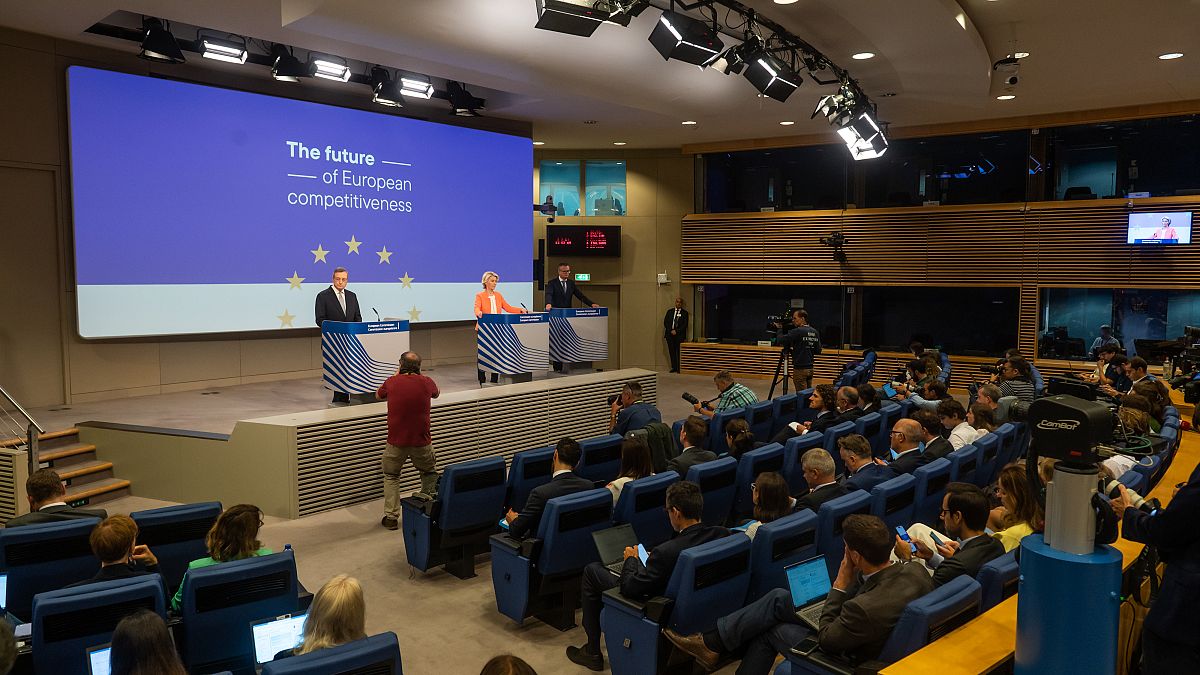The recently released report by former European Central Bank chief Mario Draghi calling for significant additional investments of up to €750-800bn annually for decarbonisation, digitalisation, and defence initiatives was met with mixed reactions. Green groups criticized Draghi for seemingly dismissing the ecological crisis, while the finance industry applauded the call for massive investment amid fears of austerity. The report outlined 170 proposals across various policy sectors, focusing on clean and digital transitions, with the aim of helping the EU catch up with global competitors like China and the US.
Various industry stakeholders and think tanks weighed in on Draghi’s report, highlighting both the challenges and opportunities it presents. Think tank Bruegel’s Gunter Wolff emphasized the difficulties European politics face when it comes to joint borrowing for investments. Additionally, the report was lauded as a reference point that would help shape the debate around necessary reforms to support European industry sectors. However, the report was also criticized for failing to address the challenges of translating innovation into commercialization due to inconsistent and restrictive laws hindering growth.
The green lobby expressed concerns over Draghi’s proposals, arguing that the report focused too heavily on industrial competitiveness and framed environmental protections as a barrier to growth. Green groups, such as BirdLife Europe and Climate Action Network (CAN) Europe, noted that the report lacked crucial elements related to just transition proposals and was not centered enough on climate neutrality and protecting the planet. Lawmakers and experts in the green sector emphasized the importance of balancing fiscal policies to support investment and economic growth while prioritizing environmental sustainability.
Financial experts and industry leaders also provided insights on the report, with suggestions for a European Competitiveness Fund under the next long-term EU budget to address the climate investment deficit. The European Bank Federation proposed regulatory shifts to foster economic growth and investment, while tech companies like Ericsson underscored the importance of investing in advanced communications infrastructure to enhance Europe’s competitiveness. Additionally, the pharmaceutical industry welcomed the report’s recognition of the need for more supportive policies to boost research, development, and manufacturing of new treatments.
In terms of defense and foreign policy, experts highlighted the potential impacts of geopolitical changes on EU competitiveness. The need for the EU to adapt to a world of slower trade growth, economic coercion risks, and security threats was emphasized. The importance of enhanced foreign and industrial policy coordination, as well as potential transatlantic partnerships to support the EU’s competitiveness agenda, was underscored. The report’s recommendations for joint transatlantic work in biotechnology, defense, and aerospace were seen as vital for maintaining competitiveness in these critical sectors.











